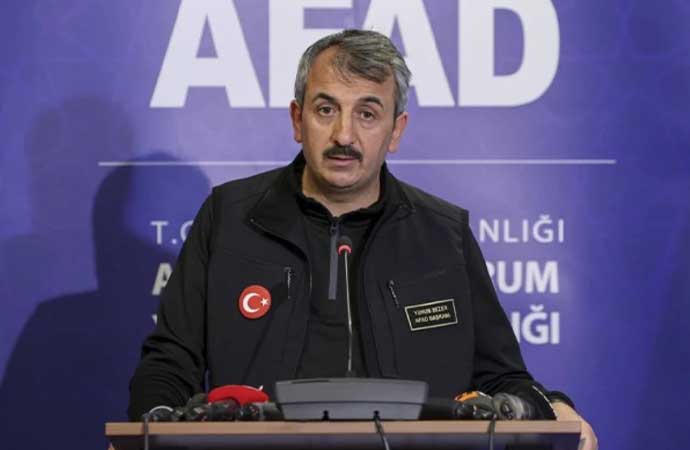The governors of 57 Turkish provinces have been changed by a presidential decree, with Disaster and Emergency Management Authority (AFAD) chairman Yunus Sezer, who was harshly criticized after two massive earthquakes in February, appointed as the new governor of Edirne, the state-run Anadolu news agency reported.
The earthquakes flattened thousands of buildings in 11 provinces in Turkey’s south and southeast on Feb. 6, claiming more than 50,000 lives.
Sezer was at the center of criticism at the time for delays in response in the earthquake zone.
According to Turkish media reports, Sezer was appointed as the new governor of the western province of Edirne by the decree, signed by President Recep Tayyip Erdoğan and published in the Official Gazette on Thursday.
The decree resulted in the replacement of governors in 57 provinces in total, while 16 governors were appointed as chief civil inspectors.
Among those moved to less prominent positions are Denizli Governor Ali Fuat Atik, Şırnak Governor Osman Bilgin, Ordu Governor Tuncay Sonel and Sakarya Governor Çetin Oktay Kaldırım, who are rumored in the capital to be close to former interior minister Süleyman Soylu, local media reports said.
Another decree reshuffled police chiefs close to Soylu earlier this month.
Ali Yerlikaya, the former governor of İstanbul, replaced Soylu as the new interior minister in early June.
Veli Okay Memiş, governor of Erzurum, where İstanbul Mayor Ekrem İmamoğlu’s campaign bus was attacked during the election campaign in May, was also replaced by Mustafa Çiftçi.
Meanwhile, Erdoğan also reshuffled five trustees in municipalities in Kurdish-majority southeastern Turkey on Thursday.
According to a report from the pro-Kurdish Peoples’ Democratic Party (HDP), the Turkish government has removed 48 HDP co-mayors from office and appointed trustees in their place since 2019, when the ruling Justice and Development Party (AKP) suffered a significant blow by losing the mayoralties of three major cities — İstanbul, Ankara and İzmir — to opposition candidates in March election.
The HDP stands accused of links to the outlawed Kurdistan Workers’ Party (PKK), although the party strongly denies any ties. The PKK has waged an insurgency against the Turkish state since 1984 and is listed as a terrorist organization by Turkey and much of the international community.
The government of President Erdoğan has been trying to close down the HDP since March 2021 over its alleged ties to the outlawed Kurdish militants.
The party says it is being singled out for standing up for Kurdish rights and resisting the government’s expanding crackdown on political freedoms and dissent.

